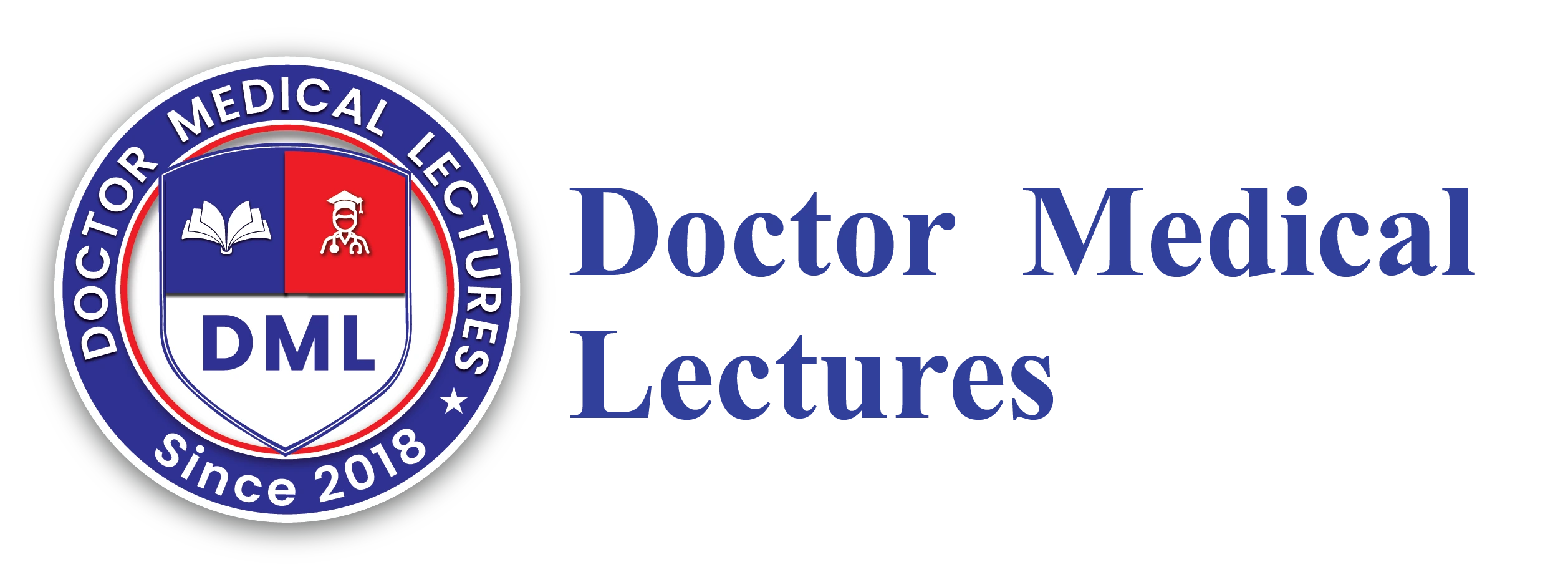Introduction NRE Step 1
The NRE Step 1 is specifically designed to measure a candidate’s proficiency in foundational medical sciences. It assesses the degree to which medical students comprehend and apply their knowledge to situations they may encounter in clinical exercise. This test assures that the student has the theoretical knowledge required for further medical education and practical applications.

In contrast to other tests, NRE Step 1 is not just about memorizing facts. It requires a conceptual understanding as well as the ability to connect diverse disciplines of science to tackle complex issues. It is crucial because the foundation of these fields often correlates to the ability to succeed in the future clinical setting.
Who Should Take NRE Step 1?
It’s often a requirement for retaken medical examinations or certifications in several nations. People who want to pursue medical fields in competition or pursue postgraduate education must pass this test to show their proficiency.
Exam Format
NRE Step 1 is a computer-based test that assesses skills through multiple-choice questions (MCQs). The questions test comprehension, reasoning, and the ability to apply knowledge. Here is a full description of the format
- Duration and Structure:
- The test lasts about 7 hours and includes various sections that are timed.
- Candidates are permitted scheduled breaks in between sections.
- Question Count:
- Usually, it is comprised of between 200 and 300 MCQs which are split into several parts of the questions.
- Subjects Covered:
- Questions stem from core disciplines like anatomy and physiology, biochemistry pathology, pharmacology as well as behavioral science.
- Integrated Approach:
- A variety of issues are clinical ones which require integration of various disciplines, for example, connecting pathology and pharmacology to decide on the best treatment options.
- Scoring System:
Subjects Included in NRE Step 1
The syllabus covers all the most important pre-clinical subjects with an emphasis on understanding and applying:
- Anatomy:
- In-depth knowledge of human body structures that include tissues, organs, and systems.
- Clinical correlations, such as understanding the effects of injuries, anatomical differences and surgical implications.
- Physiology:
- The study of the body’s functions including respiration, circulation, and neurophysiology.
- Concentrate on understanding the role of these systems in both health and in diseases.
- Biochemistry:
- Analyzing chemical and molecular processes that occur in the human body.
- Topics covered include the metabolism of food, enzyme reactions, along with genetic and biological mechanisms.
- Pathology:
- The study of diseases, which includes the causes of them, their mechanisms and their effects upon the human body.
- Understanding the pathological signs and the implications for clinical practice.

- Pharmacology:
- The knowledge of the mechanisms behind drugs their effects on the body, side effects, and therapeutic applications.
- The most frequent questions involve protocols for specific ailments.
- Microbiology:
- Research into microorganisms, inflammation as well as immune reactions.
- Concentrate on identifying pathogens and learning about vaccination strategies.
- Behavioral Sciences:
- The basics of ethics, psychology, and patient-patient communication.
- The book covers mental health issues and scenarios of patient care.
Key Features of NRE Step 1
- Clinical Relevance:
- The exam focuses on clinical applications of the basic sciences. For instance the pharmacology section could inquire about the treatment for an illness, which requires the knowledge of pathology and microbiology.
- High-Yield Topics:
- Certain subjects are more often studied, such as the physiology of cardiovascular health and biochemistry’s acid-base balance and the most common pathological diseases.
- Conceptual Understanding:
- It is not enough to just memorize understanding the concepts and then apply them is crucial.
- Standardized Testing:
- The format is guaranteed to be fair whatever the testing location.
Why is NRE Step 1 Important?
The process of clearing NRE Step 1 has a huge significance for medical students. Here’s why:
- Residency Opportunities:
- A lot of residency programs use Step 1 scores to assess applicants during their selection procedure.
- Licensing Requirements:
- Validation of Knowledge:
- The exam is an evidence of the solid foundation in medical science, that is essential for the success of clinical trials.
- Preparation for Advanced Exams:
- It helps prepare for future exams such as NRE Step 2 and other postgraduate medical examinations.
- Career Progression:
- A solid performance can boost your professional image and opens the door to competing specialty areas.
Preparation Tips for NRE Step 1
Achieving success on NRE Step 1 requires a structured and well-organized preparation plan. Here’s how to succeed:
1. Understand the Syllabus
- Start by reading the entire syllabus and exam outline. Understanding what you need to learn and the amount of importance each subject has will allow you to prioritize your studies effectively.
2. Choose the Right Study Materials
- Make use of high-quality materials such as:
- Initial Aide for the USMLE Step 1. A brief and complete guide that covers high yield areas.
- Kaplan Notes detailed notes on subjects.

-
- Pathoma as well as SketchyMedical for visualization of microbiology and pathology.
3. Practice MCQs Regularly
- Platforms such as UWorld, Amboss as well as Kaplan Qbank offer great questions banks. Practice questions can assist you in understanding exam pattern and increase your ability to solve problems.
4. Time Management
- Create a realistic study plan and allocate time for each subject according to the difficulty level of the subject and your ability.
- Make time for revising and practicing tests.
5. Focus on High-Yield Topics
- The most important thing to do is prioritize topics that are frequently examined, for example:
- Disorders of acid-base in the physiology.
- Common pharmaceutical mechanisms.
- Cardiovascular diseases are systemic diseases that can cause cardiovascular disease.
6. Take Notes
- Make notes of important details when studying. Use diagrams, flowcharts and mnemonics to aid in retention.
7. Simulate the Exam Environment
- Complete full-length mock tests under controlled conditions in order to increase endurance and pinpoint weak spots.
8. Join Study Groups
- Socializing with colleagues can help you clarify your doubts, provide ideas, and keep you inspired.
9. Stay Consistent
- Be sure to avoid procrastination and adhere to your timetable. Consistency is the key to completing the vast curriculum.
10. Seek Guidance
- Contact seniors, mentors or professionals who have completed the exam successfully to get information and suggestions.
Common Challenges and How to Overcome Them
1. Managing Stress and Anxiety
- Solution: Develop mindfulness, live an active lifestyle and make sure you take breaks during your study sessions.
2. Time Constraints
- Solution: Maintain a disciplined schedule and try to avoid spending too much time on one thing.
3. Information Overload
- Solution: Concentrate on high-yielding subjects and stay clear of unnecessary resources. Quality over quantity.
4. Difficulty in Retaining Information
- Solution: Make use of active techniques for recall such as spaced repetition and periodic revisions.
Conclusion
The NRE Step 1 exam is tough but rewarding test that plays a vitally in shaping your career as a physician. It assesses your ability to apply and integrate fundamental medical science in clinical settings, and prepares you for advanced education and clinical. If you follow the correct preparation strategies along with disciplined study and perseverance, you will overcome this challenge and put yourself up for success.
Remember that the most important thing to success in NRE Step 1 is understanding rather than memorizing. Take the test confidently, and utilize this as a reference to help you reach your objectives. Have fun!
Frequently Asked Question
1. What’s the point to the purpose NRE Step 1?
NRE Step 1 tests the knowledge of medical students about the fundamental medical sciences as well as the ability of integrating the knowledge they have acquired into practical applications. This test is designed to ensure that students have the fundamental skills needed in advanced medical education and residency programs.
2. Who can register for NRE Step 1?
Anyone who is a medical student or graduate that has completed their pre-clinical (basic sciences) studies through an accredited medical school is eligible to take the test. The criteria for eligibility may differ little bit based on the body responsible for regulating the exam.
3. How much does NRE Step 1 cost?
The cost for the examination of NRE Step 1 typically ranges from 600 and $900 depending on the area or country. There may be additional costs in the event of late registration or centers that change. It is recommended to visit the official NRE website or any relevant medical board for details on the fees.
4. How is the NRE Step 1 exam structured?
The examination is conducted using the format of a computer and generally comprises:
- 200-300 MQs split into several blocks.
- Each timed block is recorded typically about one hour.
- The duration of the examination will be approximately 7 hours with scheduled breaks.
5. What topics are covered in NRE Step 1?
The test focuses on the most important subject matter that is pre-clinical, which includes:
- Anatomy Human body structure and the surgical correlations.
- The study of physiology: Systems and mechanisms that function.
- Biochemistry The metabolic and genetic mechanisms.
- Pathology Pathology: Mechanisms for disease and organ system.
- Pharmacology drug interactions and treatment.
- Microbiology and pathogens and immunology.
- Behavioral Sciences: Ethics, communication, as well as psychology.
The subjects are typically assessed in a holistic way using scenarios from clinical trials.
6. How is the NRE Step 1 scored?
The scoring method is uniform that has a passing score established by the organization that governs it. The exact score varies, however an excellent performance is often contingent on the correct answer to an application for clinical training and questions that yield high returns.
7. How often can I take NRE Step 1?
Candidates can generally take the test again If they don’t pass in the first try. However, the number examinations may be limited (usually 3-4 times) as well as there could have to wait for a certain period of time between the retakes. Make sure you confirm any specific rules in the medical board that you are a member of.
8. What resources are recommended for NRE Step 1 preparation?
The most important resources are:
- First Aid to the USMLE First Step High-yielding study tutorial.
- UWorld as well as Kaplan Qbank: Practice questions, explanations and more.
- Pathoma: For understanding pathology concepts.
- SketchyMedical for the visual acquisition of knowledge in microbiology as well as Pharmacology.
Furthermore, joining forums online or study groups could assist in sharing ideas and other resources.
9. Is there any financial assistance available for the exam fee?
Some institutions and organizations offer discount or financial aid for candidates, specifically students in financial hardship. Make sure to contact your medical school or authority that regulates the exam to find out about scholarship programs or fees waivers.
10. What strategies can help manage time during the exam?
Time management is a key factor in efficiency:
- Take timed mock tests and familiarize yourself with the test style.
- Give an average time of one minute for each of the questions throughout the exam.
- Answer difficult questions by marking them and returning to them when you’ve answered those that are easier.
- Make sure to take regular breaks in order for recharging and to refresh.
11. Can I reschedule or cancel my exam?
Yes you can, and you can. NRE Step 1 test can be changed or cancelled, however rules and fees will can be applied.
- Rescheduling can incur extra charges in particular if the request is made close to the date of the test.
- Review the official exam rules for dates and fees.
12. What are the most common mistakes students make during preparation?
A few common errors include:
- Not enough attention is paid to low-yield subjects.
- Too many resources, instead of focusing on just a few top-quality one or two.
- Inattention to practice questions and exam mocks.
- Insufficient time management in exams and preparation.
13. How soon will I get my results after taking NRE Step 1?
Results typically are released three to four weeks following the date of the test. Candidates receive an mail or through the testing website after the release of results.
14. What happens if I fail NRE Step 1?
Answer:
If you do not pass If you fail, you may take the test again. Take the data provided by your score report in order to pinpoint weak points and help you improve your performance
15. How can I stay motivated during NRE Step 1 preparation?
For motivation to stay on track, it is important:
- Making realistic and daily goals.
- The process of tracking progress by self-assessments regularly.
- Take short breaks in order to avoid exhaustion.
- Recognizing yourself for completing the milestones.
- Staying in touch with study partners or other groups to provide support.
